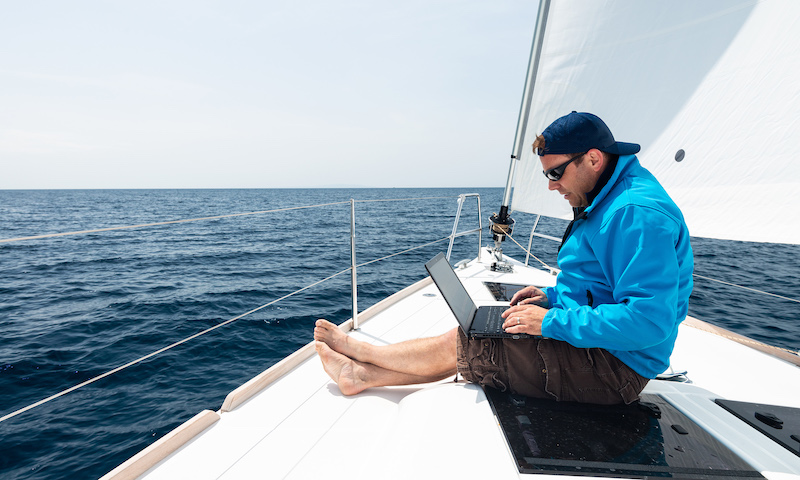
When sailing and boating, using digital logbooks to record your experience is important in order to track progress and provide proof of competency to insurance companies, banks, charter companies, or other agencies such as the US Coast Guard.
Digital logbooks have become increasingly popular over the years. It’s important to have awareness of the potential security issues that can arise with using them. Digital logbooks rely heavily on access (username and password) to ensure security of your logbook and provide little to no proof that your entries have not been tampered with. This forces skepticism from insurance companies, banks, charter companies, and other agencies when you submit your sailing resume for their review.
Protecting and Securing Digital Logbooks
All digital logbooks use some form of username and password to access. Even if you create an Excel spreadsheet you will use your account on a computer. Anyone with access to the logbook can make changes or delete entries from your logbook. There is no guarantee that your sailing resume is accurately reflecting all of your experiences. What if a hacker got into your account and deleted all of your data? How about if a hacker got into the systems of the digital logbook app provider and held everyone’s data for ransom? What if your computer or phone were stolen or destroyed in a fire and there is no backup?
At a minimum ensure that the security standards of any 3rd party app meet the credit card industry standards for PCI compliance. You should also insist that there are protections, including backups, to prevent ransomware attacks. If you are using your own solution such as Excel, ensure that you keep regular backups offsite or in the cloud in the case of theft or damage to your primary device.
Tamper-Proof Digital Logbooks
Protecting and securing your logbook is the easy part. The hardest part is proving that your logbook entries, and resulting sailing resume, is authentic and has not been tampered with by you or anyone else. Paper-based logbook solutions rely upon the captain’s signature as the only proof that your entry is authentic. But even signatures on a paper logbook can easily be forged. Tampering with entries is allowed in paper and digital logbooks even after a signature is provided. Most digital logbooks have no way to ensure and prove that a logbook entry has not been altered in any way. Therefore most digital logbooks are based 100% on self reported experience.
This is one of the reasons why the industry as a whole is forced into accepting self reported resumes. The US Coast Guard requires that the captain or owner of the vessel you log your sea time on to attest to stated experience. Almost everywhere else you are attesting to your own experiences. It is impractical to verify every entry to ensure that they are authentic and not altered in any way. Or is it?
Sailing Resume Blockchain
The Sailing Resume Blockchain solves these problems by introducing the first blockchain based sailing logbook. Experience logged is impossible for anyone, including the creator, to make changes or delete. It impossible to hold your logbook hostage by ransomware attacks or hackers. Logbook data is publicly available via the blockchain for anyone to use or verify. The Sailing Resume Blockchain is a publicly available, read-only web3 data source for all your sailing experience.
Like all blockchains, the Sailing Resume Blockchain uses a system of public and private cryptographic keys. These keys prove that your data was created by you and not altered in any way since it was created. The blockchain provides mathematical proof that your logbook entries have not been tampered with on the chain.
The Sailing Resume Blockchain implements identity verification requirements and three different levels of verification of your sailing experience. One of the available verification levels is crewmate signing. Crewmate signing is the same as the captain signing a paper-based logbook. The difference is once the captain signs the logbook entry using their digital wallet, it is locked and digitally encoded to prevent tampering.
For more information about Charter Rode, the Sailing Resume Blockchain, and how to create an account, visit charterrode.com.
Don’t let your sailing experience be lost or unusable. Secure all your sailing experience on the Sailing Resume Blockchain, building a sailing resume that may be shared, verified, and trusted by anyone in the world. Enjoy the freedom to weigh anchor and explore the world!


